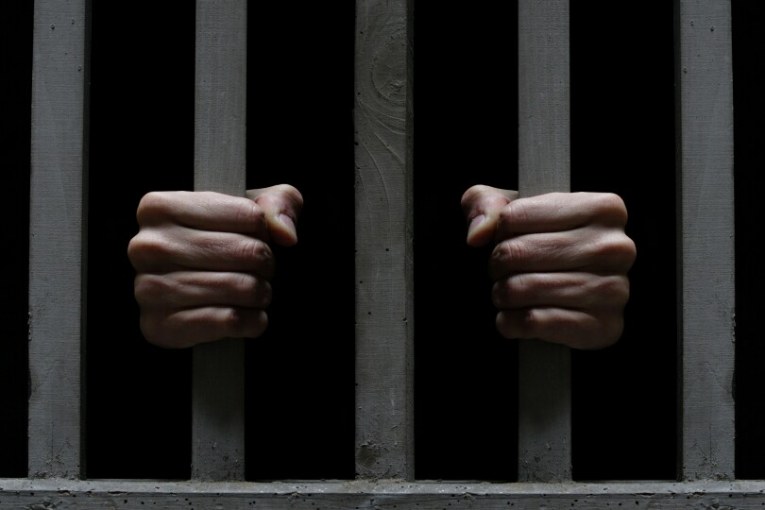

By Dylan Ferguson and Anika Khubchandani
SACRAMENTO – Propositions 17, 20, and 25 on the ballot Tuesday all featured attempts to reform California’s criminal justice system—and not necessarily in a good way. There were two victories and one loss for reformists.
In effect, there were two victories for criminal justice reform—Prop. 17, a voting rights restoration act, was OK’d by voters, and Prop. 20, which would have made more crimes felonies, lost.
Prop. 25, which would have eliminated cash bail—a major reform to make the system fairer—was defeated.
In addition, Prop. 16 focused on acknowledging the serious need to address systemic inequities in public higher education. It lost.
Proposition 16: If passed, Proposition 16 would have allowed universities and government offices to factor in someone’s race, gender, or ethnicity in making admissions, hiring, and spending decisions. But voters did not approve it.
The UC Office of the President stated that Proposition 16 could have “helped reverse the detrimental and far-reaching initiative that banned the consideration of race, ethnicity and gender in  admissions across public higher education, and other arenas, almost a quarter-century ago.”
admissions across public higher education, and other arenas, almost a quarter-century ago.”
The “far-reaching initiative” they referred to is Proposition 209, approved in 1996 and which prohibited the very things that Proposition 16 was attempting to get passed in this year’s election.
Over the last 24 years, Prop. 209 has skewed the racial and ethnic makeup of state university faculty, who do not come close to reflecting California’s ethnic diversity.
Based on Cal Matters, a nonprofit and nonpartisan journalist venture, since Prop. 209 was passed, “the sheer number of Black and Latino students admitted as freshmen to the UC has quadrupled. But while Black and Latino students made up 60 percent of California’s high school enrollment, they comprised just 28 percent of UC freshmen admits in 2019.”
The Wall Street Journal stated that before Proposition 209, African American students at the University of California Berkeley made up “between six and seven percent of the freshman class.” But after the measure passed, “African American students made up around three percent of the freshman population for the past decade, while being 6 percent of the state’s public high school graduates. Latinos make up about 54 percent of the public high school seniors in the state but are only 15 percent of Berkeley’s freshman class.”
Assemblymember Shirley Weber from San Diego led efforts to get Proposition 16 on the Nov. 3 ballot and said that “Prop. 209 was blatantly racist.”
Retiring CSU Chancellor Timothy P. White felt similarly, as he said the ban that was passed with Prop. 209 was “a fundamental opportunity gap” for students of color. White also said that “Prop.16 would give the system more tools to attract diverse faculty and keep them as successful faculty members.”
Although Proposition 16 did not pass, the UC Office of the President is not discouraged. They acknowledged the barriers that will remain in place, which are a detriment to many of their students, families, and California at large. But they also stated, “We will not accept inequality on our campuses and will continue addressing the inescapable effects of racial and gender inequity.”
Proposition 17: California Proposition 17, known as the Voting Rights Restoration for Persons on Parole Amendment, was approved with 59 percent support Tuesday, giving people on parole for felony convictions the opportunity to vote.
As of November 2, 2020, the California Constitution disqualified people convicted of felonies from voting until both their imprisonment and parole sentences were completed. Now, the amendment to the state constitution allows people on parole to vote, but still disenfranchises those who remain imprisoned.
Nevertheless, the proposition represents a positive step toward reforming the California criminal justice system. State Assemblymember Kevin McCarty (D-7), the lead author of the constitutional amendment, expressed that “parole by definition is not a punishment” since it is meant “to help reintegrate people back into the mainstream.”
Since removing a person’s right to vote is “rooted in a punitive justice belief system that intentionally attempts to rob marginalized people of their political power” instead of on the basis of public safety, executive director of Initiate Justice Taina Vargas-Edmond asserts that re-enfranchisement needs to be a top priority.
Felony disenfranchisement disproportionately affects communities of color. According to the Public Policy Institute of California, “African Americans remain overrepresented in California’s prison population.” About 28.5 percent percent of the state’s male prisoners are African American and the imprisonment rate for African Americans is 10 times the rate for white men. Latino men are also significantly over-represented. The imprisonment rate for Latino men is 1,016 per 100,000 while for men of other races it is 314.
Even though the United States has attempted to increase disenfranchisement throughout the country since 1997, many states have revised their felony disenfranchisement policies “in an effort to reduce restrictiveness and expand voter eligibility.” California is finally following suit.
The Sentencing Project—a DC based think tank working to reduce incarceration and address racial disparities throughout the US criminal justice system—commends California’s passage of Prop. 17. Nicole D. Porter, the director of advocacy at The Sentencing Project, stresses that “expanding the franchise to persons on parole strengthens democracy.” Considering many citizens with felony conviction records pay taxes and participate in their communities, “they should never lose their voting rights.”
Proposition 20: Proposition 20 would have added crimes to the list of violent felonies with restricted early parole; recategorized certain types of theft and fraud crimes as chargeable as misdemeanors or felonies and required DNA collection for certain misdemeanors. But it went down to defeat.
Prop. 20 could have made certain fraud and theft offenses previously regarded as misdemeanors “wobblers.” A “wobbler” means that an offense could be charged either as a misdemeanor or a felony, regardless of the item being stolen. With Prop. 20, thefts between $250 to $950 could be charged as a felony.
The number of incarcerated individuals eligible to go before the parole board would also have been reduced, as the list of crimes classified as violent would have increased.
Ultimately, the passing of Prop. 20 could have resulted in extreme sentences for petty theft and could have disproportionately impacted vulnerable minorities. Based on the NAACP, “32 percent of the US population is represented by African Americans and Hispanics, compared to 56% of the US incarcerated population being represented by African Americans and Hispanics.” The NAACP has also highlighted that “if African Americans and Hispanics were incarcerated at the same rates as whites, prison and jail populations would decline by almost 40 percent.”
Jay Jordan, the executive director of Californians for Safety and Justice, an organization behind many reforms that Prop. 20 would have eliminated, celebrated the unsuccessful attempt of passing Prop. 20. Jordan stated that Prop. 20’s defeat is a milestone in California, as we continue to make an “ongoing effort to make California’s criminal justice system more effective” and “the rejection of mass incarceration by voters is a major advance for the national criminal justice reform movement…”
Jay Jordan is not alone in feeling this way. Prior to the election, former Gov. Jerry Brown, who played a key role in some changes that would be rolled back by Proposition 20, campaigned against the measure and criticized its supporters, calling the measure “vindictive.”
The League of Women Voters California also did not support Proposition 20. They believed that, if passed, California residents would see an increase in “state and local costs by tens of millions of  dollars annually” (due to the increase of the prison population and changing the way post-release supervision is handled), without increasing public safety.
dollars annually” (due to the increase of the prison population and changing the way post-release supervision is handled), without increasing public safety.
Proposition 25: California Proposition 25 attempted to uphold Senate Bill 10 which would have replaced the cash bail system with risk assessments for detained suspects awaiting trial. Proposition 25 was defeated by 55 percent, repealing the law.
As of 2020, California had in place a cash bail system which releases detained criminal suspects before their trials if they are able to pay a cash bond. Suspects operate on the promise to return to court for trial and proceedings.
Once a criminal trial comes to an end, the cash bond is repaid to the suspects regardless of their verdict. The Judicial Council of California states that cash bail is used “as a tool to ensure the presence of the defendant before court,” giving judges every right to adjust cash bail amounts.
Supporters of Proposition 25 claim that the utilization of risk assessments will lead to a “safer, fairer and less costly system,” noting that money bail does not make communities safer because the “rich can go free” until their trial “even when accused of serious violent crimes” while the poor must rot in jail even if they are accused of low-level nonviolent offenses. By implementing a risk assessment system, judges will be forced to make decisions based on the accused danger level instead of the “size of a person’s wallet.”
According to the Brennan Center for Justice, “cash bail is a system that punishes the poor” and therefore needs to be reformed; however, the new idea of using risk assessments could also be problematic.
Since risk assessments give judges immense discretion over pretrial detention decisions, many criminal justice advocacy groups—the ACLU of California, California Attorneys for Criminal Justice, and Human Rights Watch—suggest that this new system could exacerbate racial disparities and perpetuate socio-economic and gender bias.
Jeff Clayton, the spokesperson for Californians Against the Reckless Bail Scheme, admits that “bail reform is necessary” but Proposition 25 is a “reckless attempt at changing the state’s bail system and is fundamentally bad for California.” Former Assemblymember Joe Coto from San Jose agrees with Clayton and stresses that upholding SB 10 is “an injustice we can’t afford.”
To sign up for our new newsletter – Everyday Injustice – https://tinyurl.com/yyultcf9
Support our work – to become a sustaining at $5 – $10- $25 per month hit the link:




